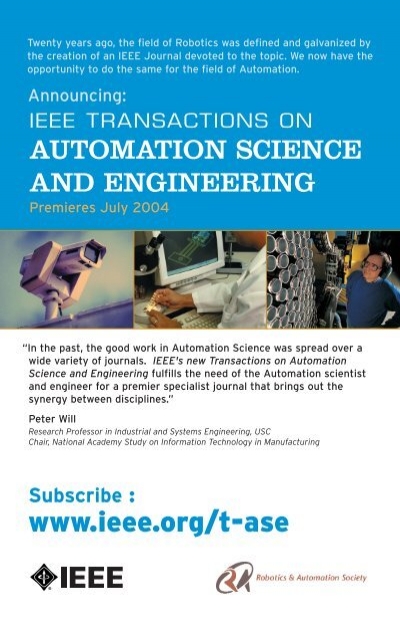基于信任的二人任务协商顺序单调让步协议
IF 6.4
2区 计算机科学
Q1 AUTOMATION & CONTROL SYSTEMS
IEEE Transactions on Automation Science and Engineering
Pub Date : 2025-03-28
DOI:10.1109/TASE.2025.3574289
引用次数: 0
摘要
针对不完全信息条件下的任务分配问题,提出了一种基于信任的双边协商机制。尽管已经探索了许多技术来识别和拒绝此类恶意代理,但由于缺乏先验知识、分布式实现或依赖外部实体,这些方法通常是不切实际的。相比之下,所提出的机制使代理能够在承认可能存在的欺骗的同时,通过信任进化和分布式决策自主地减轻欺骗。该机制将信任和合作效用整合到单调让步协议中,其中扩展的Zeuthen策略形成纳什均衡。引入了信任加权效用函数,使agent能够根据对手的行为自适应调整协商行为。我们提供了机制的理论分析,包括纳什均衡,可能的欺骗,和可达性。在协商过程中,代理会迭代更新信任,这既决定了他们的合作程度,也决定了他们的信息披露。较高的信任水平鼓励合作和逐步的信息共享,而较低的信任水平促进自私行为和有限的信息暴露。广泛的蒙特卡罗模拟表明,所提出的机制有效地减轻了欺骗,并提高了各种欺骗场景下的谈判结果。从业人员注意:本研究的动机是任务分配问题,特别关注可以直接映射到旅行推销员问题的成本函数。文中给出的所有仿真实例都采用动态规划计算精确的代价函数并确定最优解。然而,考虑到问题的组合性质,这种技术在可行的时间限制内可能是不切实际的,特别是在处理大量任务或具有多个障碍的复杂环境时。在这种情况下,启发式方法可以作为减轻计算负担的替代方法。本文章由计算机程序翻译,如有差异,请以英文原文为准。
Trust-Based Sequential Monotonic Concession Protocol for Two-Player Task Negotiation
We propose a trust-based bilateral negotiation mechanism for task allocation problems under incomplete information, where a deceptive agent may disseminate false information to manipulate the outcome. Although numerous techniques have been explored to identify and reject such malicious agents, these approaches are often impractical due to insufficient prior knowledge, distributed implementation, or dependency on external entities. In contrast, the proposed mechanism enables agents to autonomously mitigate deception through trust evolution and distributed decision-making while acknowledging possible deception. The proposed mechanism integrates trust and cooperative utility into the Monotonic Concession Protocol, where the extended Zeuthen strategy forms a Nash equilibrium. A trust-weighted utility function is introduced, allowing agents to adaptively adjust their negotiation behavior based on the opponent’s behavior. We provide theoretical analysis of the mechanism, including Nash equilibrium, possible deception, and reachability. During negotiation, agents iteratively update trust, which governs both their degree of cooperation and information disclosure. A higher trust level encourages collaboration and gradual information sharing, while lower trust promotes selfish behavior and limited information exposure. Extensive Monte Carlo simulations demonstrate that the proposed mechanism effectively mitigates deception and enhances negotiation outcomes across various deception scenarios. Note to Practitioners—This research is motivated by the task allocation problem, specifically focusing on the cost functions that can be directly mapped into the traveling salesman problem. All simulation examples presented in this paper employ dynamic programming to compute exact cost functions and identify the optimal solution. However, given the combinatorial nature of the problem, this technique may prove impractical within feasible time constraints, especially when dealing with a large number of tasks or a complex environment with multiple obstacles. In such cases, a heuristic approach could serve as an alternative that alleviates computational burden.
求助全文
通过发布文献求助,成功后即可免费获取论文全文。
去求助
来源期刊

IEEE Transactions on Automation Science and Engineering
工程技术-自动化与控制系统
CiteScore
12.50
自引率
14.30%
发文量
404
审稿时长
3.0 months
期刊介绍:
The IEEE Transactions on Automation Science and Engineering (T-ASE) publishes fundamental papers on Automation, emphasizing scientific results that advance efficiency, quality, productivity, and reliability. T-ASE encourages interdisciplinary approaches from computer science, control systems, electrical engineering, mathematics, mechanical engineering, operations research, and other fields. T-ASE welcomes results relevant to industries such as agriculture, biotechnology, healthcare, home automation, maintenance, manufacturing, pharmaceuticals, retail, security, service, supply chains, and transportation. T-ASE addresses a research community willing to integrate knowledge across disciplines and industries. For this purpose, each paper includes a Note to Practitioners that summarizes how its results can be applied or how they might be extended to apply in practice.
 求助内容:
求助内容: 应助结果提醒方式:
应助结果提醒方式:


